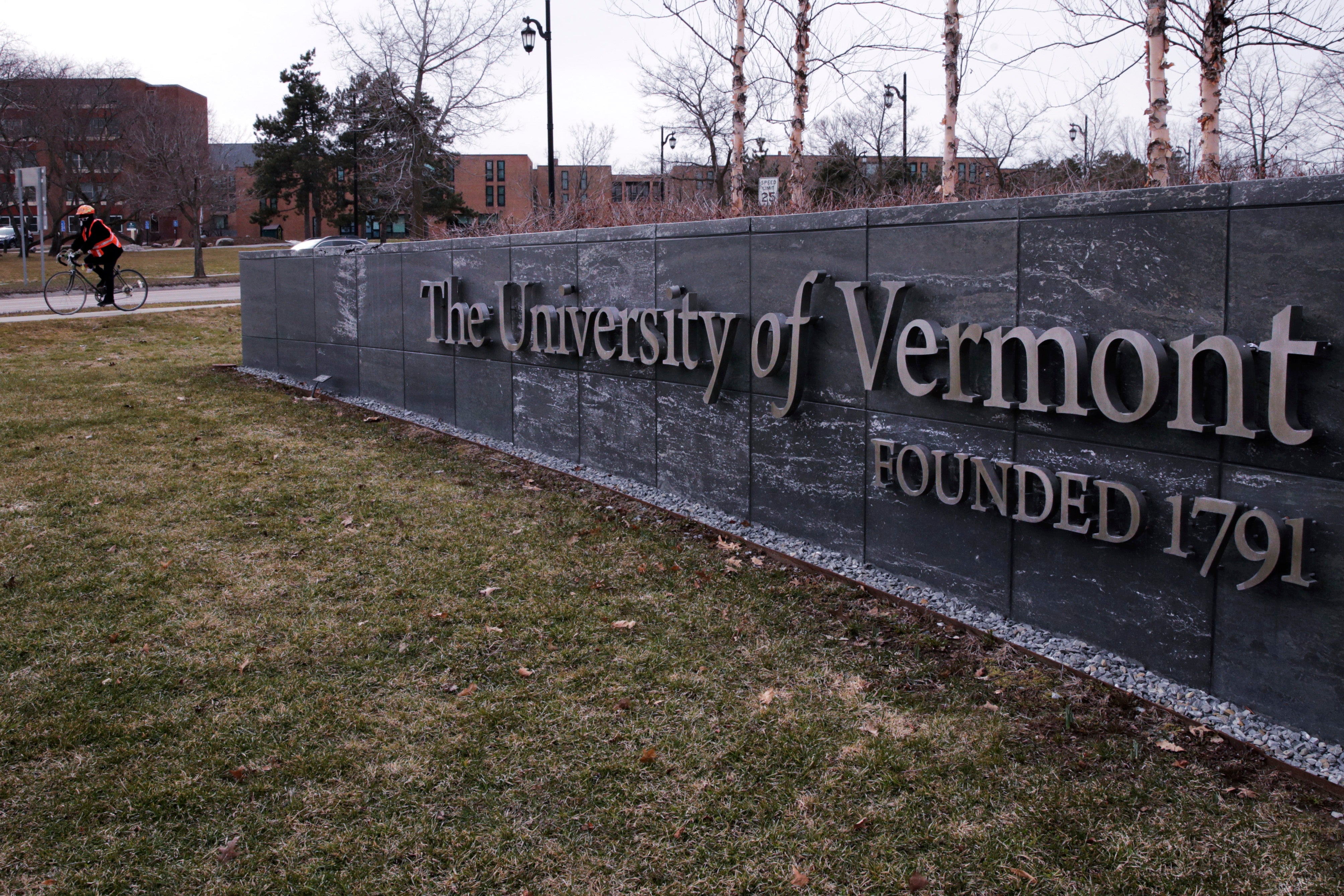U of Vermont president denies antisemitism allegations
The president of the University of Vermont has issued a blistering denial of allegations the university failed to adequately respond to complaints of anti-Jewish behavior on the Burlington campus

Your support helps us to tell the story
From reproductive rights to climate change to Big Tech, The Independent is on the ground when the story is developing. Whether it's investigating the financials of Elon Musk's pro-Trump PAC or producing our latest documentary, 'The A Word', which shines a light on the American women fighting for reproductive rights, we know how important it is to parse out the facts from the messaging.
At such a critical moment in US history, we need reporters on the ground. Your donation allows us to keep sending journalists to speak to both sides of the story.
The Independent is trusted by Americans across the entire political spectrum. And unlike many other quality news outlets, we choose not to lock Americans out of our reporting and analysis with paywalls. We believe quality journalism should be available to everyone, paid for by those who can afford it.
Your support makes all the difference.The president of the University of Vermont issued a blistering denial Thursday of allegations the university failed to adequately respond to complaints of anti-Jewish behavior on the Burlington campus.
In a message to the university community, President Suresh Garimella said the complaints being investigated by the Department of Education's Office of Civil Rights have “painted our community in a patently false light.”
“While common wisdom dictates remaining patiently silent as we cooperate diligently with an agency’s investigation, I simply cannot do so," Garimella's message said. “These public allegations and our community’s deeply held values call for a strong and immediate response."
Garimella said the university promptly and thoroughly investigated the allegations outlined in the complaint last year after learning of them.
“The uninformed narrative published this week has been harmful to UVM," he said. “Equally importantly, it is harmful to our Jewish students, faculty, staff, and alumni."
On Tuesday, when the complaint and the Department of Education's investigation were made public, university officials said they were aware of the complaint and were cooperating. At the time, they reiterated the university's commitment to inclusiveness.
Alyza Lewin, the president of the the Louis D. Brandeis Center for Human Rights Under Law , who helped file the complaint, said it was discouraging to see the university double-down on its denial of antisemitism on its campus.
“The rationalizations they provide are the same excuses that they gave me a year ago when I spoke to them," she said Thursday. “They are stubbornly refusing to see and acknowledge that Jewish students on their campus are being targeted and marginalized and excluded on the basis of a key component of their Jewish identity.”
The allegations in the complaint filed by the Center for Human Rights and the organization Jewish on Campus said that Jewish students were excluded from campus clubs, a teaching assistant threatened to reduce the grades of students who supported the state of Israel and rocks were thrown at a building where Jewish students lived.
After investigating the complaint made Sept. 30. 2021, that two groups excluded from membership students who supported Israel as the homeland for Jewish people, the university determined the groups were not recognized student organizations, received no university support and were not bound by the university's policies governing student organizations.
The university also investigated allegations that an undergraduate teaching assistant made anti-Semitic remarks and had threatened to lower the grades of Jewish students. The university determined that no grades were lowered ,and no student reported they had been discriminated against.
Finally, after learning that rocks had been thrown at a campus building where Jewish students lived, police determined small rocks were thrown at the building to get the attention of a friend, and there was no evidence it was motivated by antisemitic bias, Garimella said.
Lewin said all three explanations fell short, and the university should have forcefully spoken out against antisemitism in all the cases.
The allegations of antisemitism at the university come after antisemitic incidents in the U.S. reached a record high last year. Earlier this year The Anti-Defamation League counted 2,717 antisemitic incidents of assault, harassment and vandalism in 2021, a 34% increase over the previous year and the highest number since the New York City-based group began tracking such incidents in 1979.